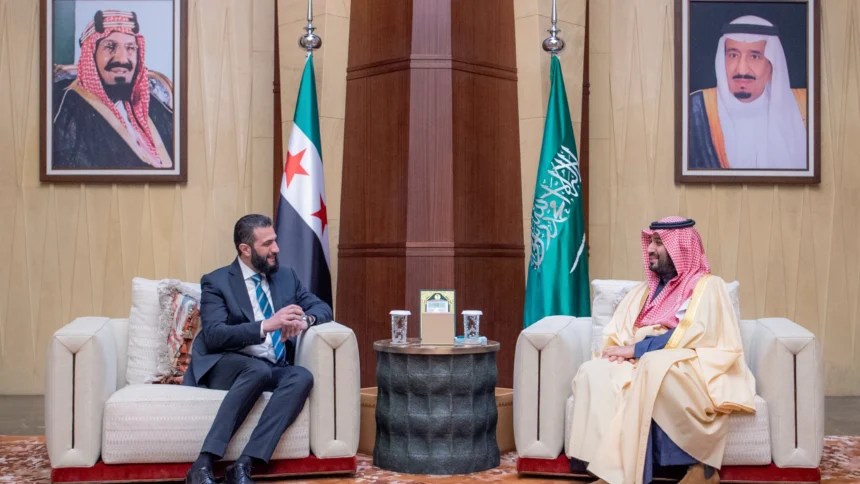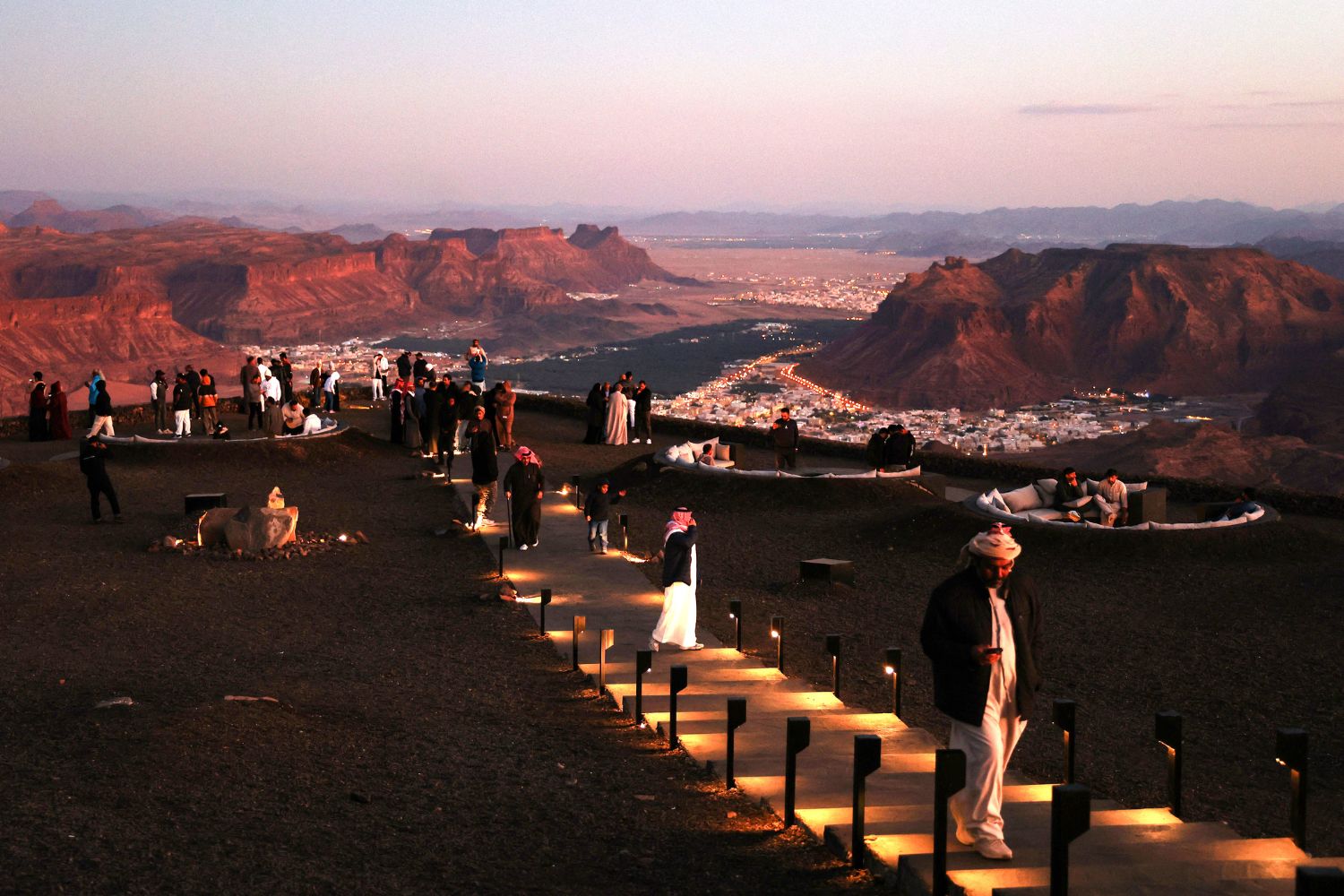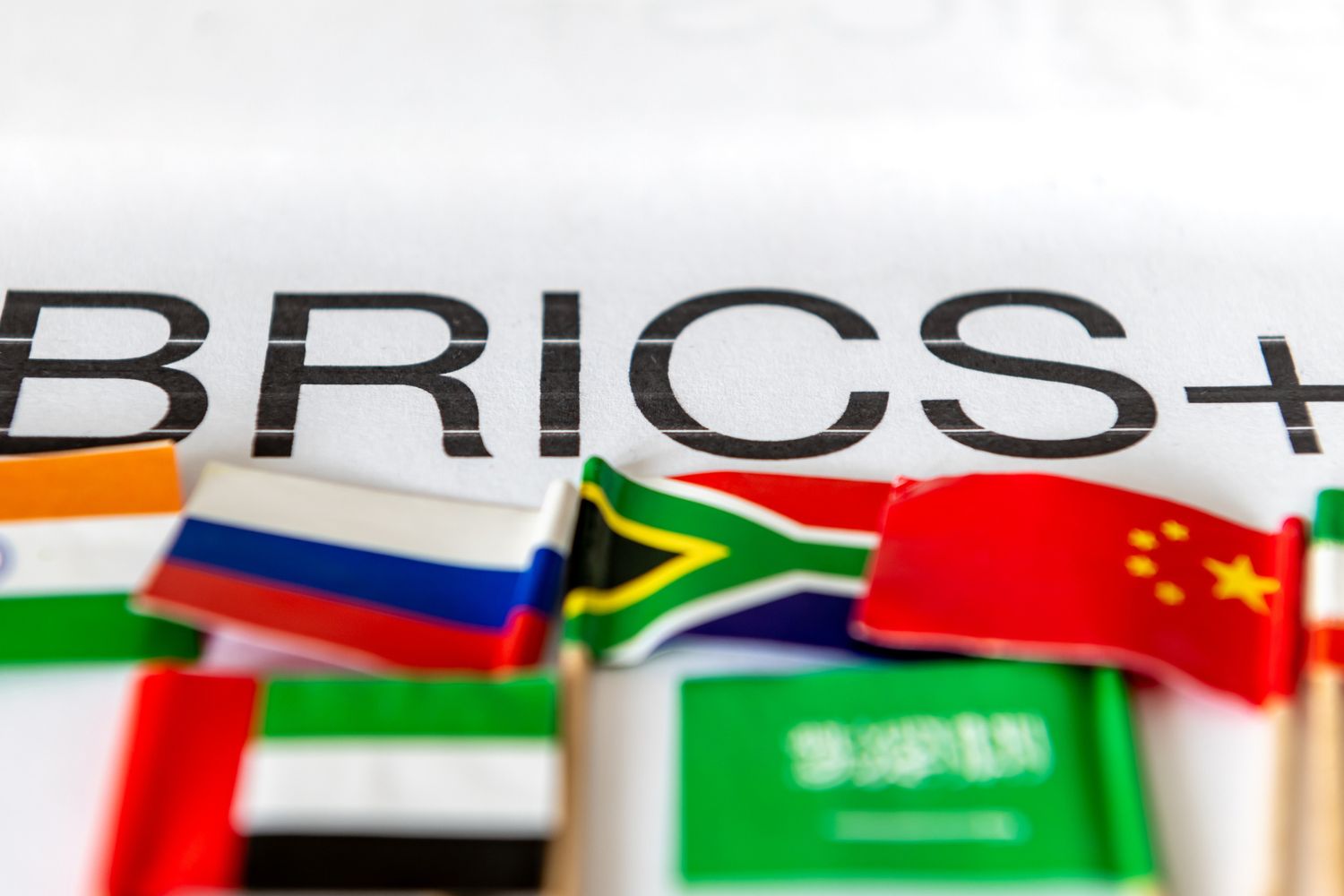Syria’s interim president, Ahmad al-Sharaa, embarked on his first international trip on Sunday, choosing Saudi Arabia as his initial destination—a move widely interpreted as an effort to realign Damascus’ regional alliances away from Iran.
A Symbolic First Visit to Riyadh
Al-Sharaa, formerly associated with al-Qaida, arrived in Riyadh alongside his government’s foreign minister, Asaad al-Shaibani. The two officials traveled aboard a Saudi jet, with the kingdom’s flag prominently displayed behind them.
Saudi state television emphasized the significance of al-Sharaa’s choice of Riyadh as his first official visit, underlining Saudi Arabia’s growing role in Syria’s diplomatic landscape. Upon arrival, Syria’s new tricolor flag was hoisted alongside Saudi Arabia’s national flag, marking the event as a diplomatic milestone.
Later, al-Sharaa met with Saudi Crown Prince Mohammed bin Salman at al-Yamamah Palace, where discussions focused on bolstering Syria’s security, stability and economic cooperation (source). The Saudi Press Agency (SPA) reported that both nations are working to enhance communication and collaboration, particularly in humanitarian and economic sectors.
Saudi Arabia’s Shifting Role in Syria’s Conflict
Saudi Arabia was among the Arab nations that initially funded insurgent groups seeking to oust President Bashar al-Assad following the 2011 Arab Spring. However, as Assad—backed by Iran and Russia—secured his position, Saudi support diminished. The power dynamics shifted further in December 2023, when a rapid military campaign led by al-Sharaa’s group, Hayat Tahrir al-Sham (HTS), significantly altered Syria’s political landscape.
Although HTS was formerly aligned with al-Qaida, it has since renounced these ties. Al-Sharaa has strategically rebranded his leadership, adopting a military-style image akin to Ukrainian President Volodymyr Zelenskyy, appointing women to government roles and attempting to foster relationships with Syria’s Christian and Shiite Alawite communities. This has also meant keeping both Iran and Russia at a cautious distance.
Iran and Russia’s Position Amidst Syria’s Realignment
Iran has yet to reopen its embassy in Damascus, which previously served as a critical hub for its Axis of Resistance, a network that includes Hezbollah and other regional allies. While Iranian state media acknowledged al-Sharaa’s visit to Saudi Arabia, it did not comment on Tehran’s diminishing influence in Syria. Meanwhile, Russia, which granted asylum to Assad during al-Sharaa’s rise, still seeks to maintain access to its air and naval bases in Syria.
Economic Considerations: Lifting Sanctions and Reconstruction Efforts
Al-Sharaa’s outreach to Saudi Arabia appears to be part of a broader strategy to ease Western sanctions on Syria. After more than a decade of war, the country faces devastating economic challenges, with reconstruction costs estimated in the hundreds of billions of dollars.
Saudi Foreign Minister Prince Faisal bin Farhan visited Damascus in January 2024, confirming that Riyadh is actively engaged in dialogues to lift sanctions (source). Unlike Turkey and Qatar, which remain al-Sharaa’s primary allies, Saudi Arabia reestablished diplomatic ties with Assad in 2023. A potential easing of economic restrictions could further solidify Saudi-Syrian relations.
Before traveling to Saudi Arabia, al-Sharaa hosted Qatari Emir Sheikh Tamim bin Hamad Al Thani in Damascus, marking the first visit by a foreign head of state under his leadership.
Security Challenges: ISIS and Turkish Influence in Syria
Despite diplomatic advances, Syria’s interim government still faces significant security threats, including from ISIS and other militant groups. Just a day before al-Sharaa’s trip, a car bomb explosion in Manbij (Aleppo Governorate) killed four civilians and injured nine others, according to Syria’s state news agency, SANA (source).
Meanwhile, Turkish-backed Syrian rebels seized control of Manbij in December 2023 as part of Ankara’s broader buffer-zone strategy along its southern border.
Syria’s Evolving Diplomatic Landscape
Al-Sharaa’s visit to Saudi Arabia signals a major geopolitical shift in Syria’s regional alliances. By distancing itself from Iran and engaging with Saudi Arabia, Damascus is attempting to redefine its diplomatic standing, secure economic support and navigate the complex realities of post-war reconstruction. However, with ongoing security threats and regional power struggles, Syria’s path forward remains uncertain.













